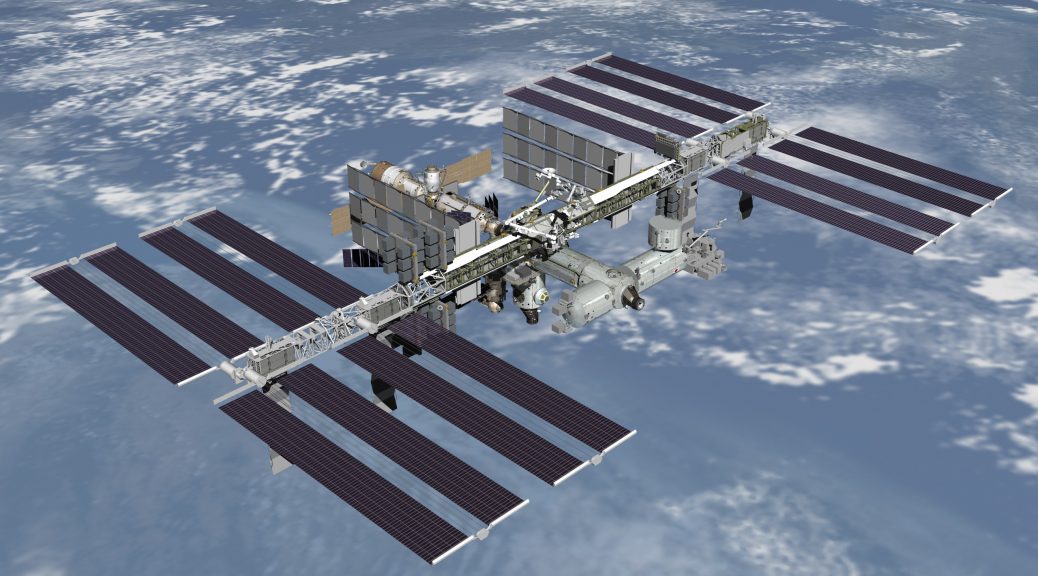On 26 April, via technology managed by ARISS we participated in a contact with the ISS. It was a long signal chain that starts with a telebridge using a mobile phone link and PTT microphone that links to VK4KHZ (Shane) as a local moderator and ON4ISS (Jan) and then via RF to the ISS on 145.8 MHZ.
Our part was providing and environment and a local moderator VK2KZ Anthony Monger. There we some technical issues with a 6db variation in incoming and out going audio levels which produced a little sweating by the local operator in the room.
Following is the text of the ARISS Press Release:
ARISS News Release No. 21-23
ARISS Contact Scheduled for Students at St Scholastica’s College, Glebe, New South Wales, Australia
April 22, 2021—Amateur Radio on the International Space Station (ARISS) has received schedule confirmation for an ARISS radio contact with astronauts. ARISS is the group that puts together special amateur radio contacts between students around the globe and crew members with ham radio licenses on the International Space Station (ISS).
This will be a telebridge contact via amateur radio and students will take turns asking their questions of Astronaut Victor Glover, amateur radio call sign KI5BKC. English is the language that will be used for this contact. Both onsite and remote access will be provided to the student body at the time of the contact per Covid-19 guidelines. The downlink frequency for this contact is 145.800 MHZ and may be heard by listeners that are within the ISS-footprint that also encompasses the ARISS radio telebridge station.
ARISS team member Jan Poppeliers, in Aartselaar, Belgium using radio call sign ON4ISS, will serve as the ARISS relay amateur radio station.
The ARISS radio contact is scheduled for April 26, 2021 at 6:34 pm AEST (Sydney), (8:34 UTC, 4:34 am EDT, 3:34 am CDT, 2:34 am MDT and 1:34 am PDT).
St Scholastica’s College (about 1000 students) is an Independent Catholic day and boarding secondary school for girls founded by the Sisters of the Good Samaritan of the Order of St. Benedict. St Scholastica’s College is located in Glebe, a suburb of western Sidney, Australia. The school offers courses in the fields of science and mathematics in their STEM curriculum. Students also have participated in the ACTURA space program in the U.S. with some students visiting NASA facilities through a program with University New South Wales.
_____________________________
As time allows, students will ask these questions:
1. How has being in the space station changed your beliefs and or perspectives of the universe?
2. What have you found out on the ISS that can’t be found out on Earth?
3. Has COVID-19 had an impact on life in the space station?
4. How do you keep in touch with your family when you are in space?
5. Do you ever feel existential terror from being in space and seeing how endless the universe is? / How do you deal with this?
6. I imagine your work, being so far away and of such a vast scale, would impact your mental health. Considering this, are there ways you work on your mental health onboard, and has your experience changed the way you think?
7. What was the hardest of the requirements for space travel for you to meet?
8. Do you believe that in the future, younger people will be able to go into space?
9. What made or motivated you to want to become an astronaut?
10. Can you see the effect of climate change from space? And if so, what are the phenomena you have observed?
11. What would you say is the most important skill for astronauts to have and master?
12. If funding for space exploration became scarce, how would you convince the world that space exploration was worth the investment?
13. Do you believe that the tests and studies you perform will cause great change and progress in the way we live or view the world?
14. When first arriving into the space station how did you feel? And how do you feel now?
15. Is there day and night in space?
16. Is NASA training similar to Roscosmos training? If so, how? What are the similarities/differences?
17. How long did you have to train and prepare to go into space and what was the training like?
18. Have you, personally, ever had to repair a part of the ISS due to damage caused by man-made space debris? And if so, what part of the spacecraft did you repair?
19. What is the best scientific advancement or discovery that the ISS has delivered to humanity?
20. Where does your waste (rubbish and sewerage) go?
21. Is the future of space travel likely to be in the hands of private companies like Space X or government agencies like NASA?
22. What impact do you think that the ISS has had on international cooperation?


